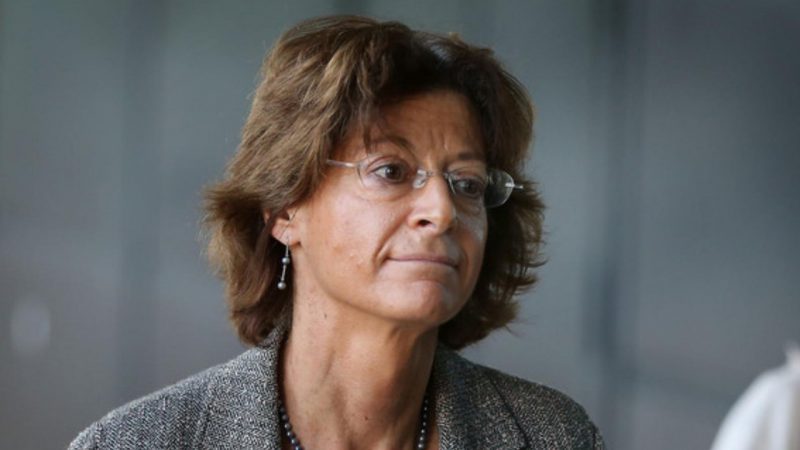- Victorian Ombudsman Deborah Glass has found the state government’s public housing tower lockdown in early July to be a breach of human rights
- An investigation into the sudden lockdown found the Victorian government to have breached basic rights like the right to equality, protection from inhuman treatment, privacy, and life, among others
- The ombudsman’s report found that on July 4, 3000 Melbourne residents living in public housing towers were issued a lockdown with no prior notice
- While the lockdown was agreed upon by senior health officials, residents were meant to be given a full day to prepare and stock up on any essentials
- Nevertheless, most residents only found out about the lockdown when they saw surrounding their homes
- The Victorian government has rejected the ombudsman’s findings, claiming it did what it needed to in order to save lives
- The ombudsman warned that human rights should never be seen as expendable, no matter how dire a situation
Victorian Ombudsman Deborah Glass has found the state government’s public housing tower lockdown in early July to be a breach of human rights.
On July 4, around 3000 Melbourne residents living in public housing towers were issued a lockdown order as the Victorian government worked to curb an outbreak of COVID-19.
While stay-at-home orders had been issued across Melbourne days before, the tower residents were forced into hard lockdown without any prior warning or advance notice.
As the ombudsman puts it, these residents were “detained” by the state inside of their “often-crowded high-rise homes without outside space”.
It was the lack of warning, however, that was largely responsible for the breach of human rights, according to the ombudsman.
A report on an investigation into the Victorian lockdowns claims that around 11 am on July 4, senior health officials agreed that a lockdown was necessary in order to keep the virus from spreading out of the public housing further.
However, after lengthy discussion, it was agreed that the lockdown would be enforced the following day to give residents of the towers ample time to prepare and stock up on whatever essentials they required.
Yet, at 4:08 pm that same day, Premier Dan Andrews announced the lockdown, effective immediately.
“Most of the residents found out about it when they saw uniformed police officers surrounding their homes,” the ombudsman’s report said.
The report found that Deputy Chief Health Officer Annaliese van Diemen, who was acting as state Chief that day, signed off on the lockdown directions, but the timing was not on her advice.
“She was given less than 15 minutes to consider the terms of several lengthy documents and their human rights implications,” the report found.
This meant many of the residents were without food, medication, essential support, and even adequate information they needed during the lockdown.
“The lockdown worked — halting the rapid growth of COVID-19 cases within the building. But in my opinion, the detention of residents on July 4, 2020, appears to have been contrary to law.”
Victorian Ombudsman Deborah Glass, December 2020
What rights were breached?
The ombudsman’s report makes some serious allegations about the human rights that were breached during the sudden lockdown period.
The lockdown impacted some of the individuals’ right to equality and right to life, as those with disabilities could not access treatments, religious folk could not engage in worship activities, and resident requiring medical care, treatment, and supplies had access to these crucial facilities cut-off.
A lack of access to food, fresh air, and in many cases meaningful human contact also breached the basic right to protection from cruel, inhuman, or degrading treatment.
Religious freedom, freedom of movement, and basic privacy were also breached during the lockdown — among other rights — according to the ombudsman report.
“No apology” from Vic. government
Nevertheless, Victoria’s state government has rejected the ombudsman’s findings and claimed it does not agree that the sudden lockdown breached any human rights.
According to the state, the Department of Health and Human Services took steps to ensure it could provide food, daily essentials, and medication to all residents in need.
While the state government has admitted that people found themselves in challenging situations because of the lockdowns, the urgency of the situation meant the government had to act quickly in order to save lives.
In fact, Housing Minister Richard Wynne said the government makes no apology for its actions during the COVID crisis.
“We make no apology for saving people’s lives.”
Victorian Housing Minister Richard Wynne. December 2020
“You needed to contain people in order to ensure that you contained the virus,” he said.
The ombudsman stressed that her report is not a criticism of the Victorian government, but a reminder to not ignore human rights no matter how dire a situation.
“We may be tempted, during a crisis, to view human rights as expendable in the pursuit of saving human lives. This thinking can lead to dangerous territory,” she said.
“Proper consideration of human rights would have allowed for time to communicate and at least to some degree, better plan the public health response.”

